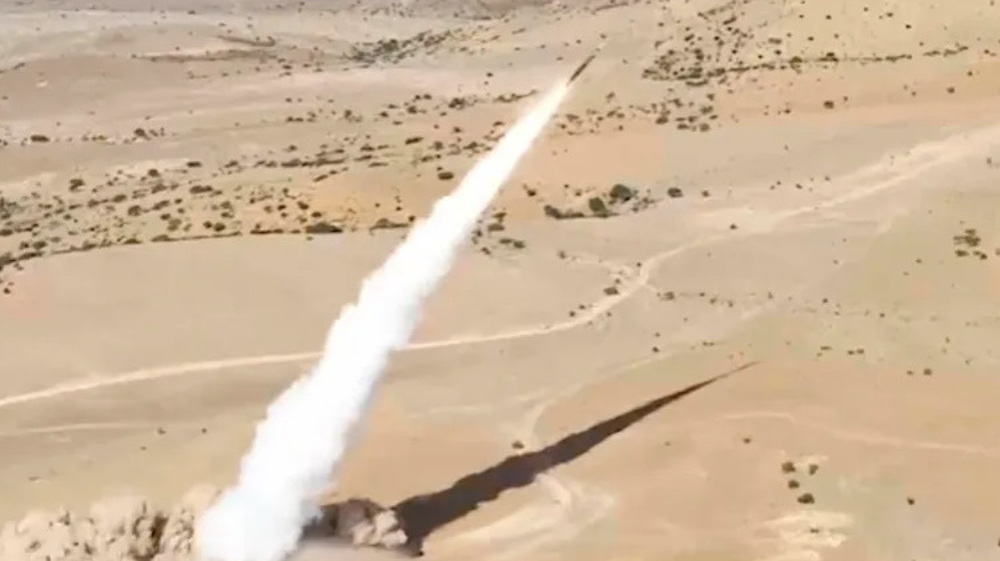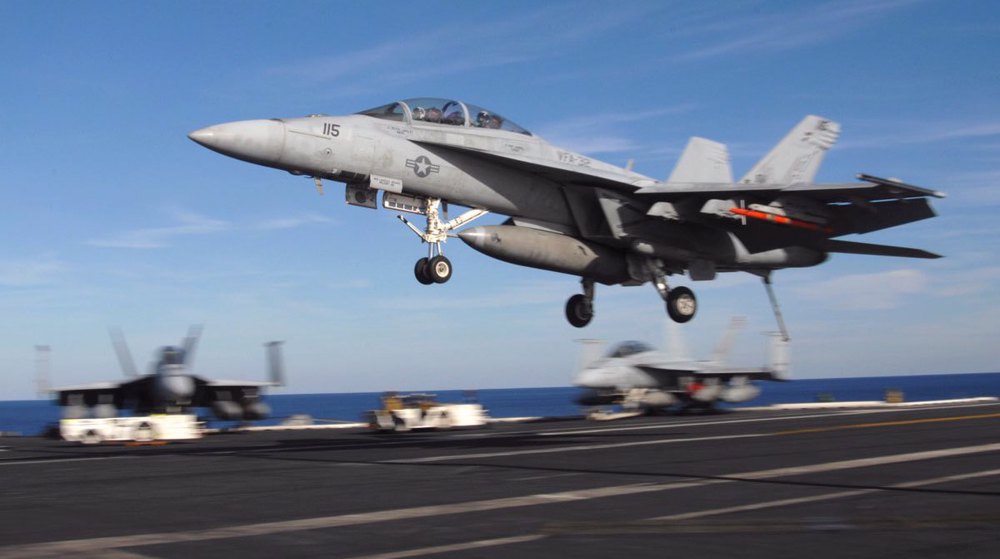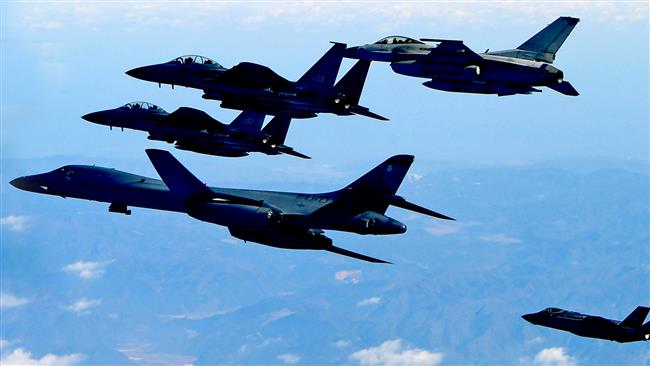US, Japanese, Aussie forces conduct naval war games aimed at China
US, Australian and Japanese naval forces have carried out a mock coastline invasion in a war game designed to demonstrate how the three allied nations could collaborate in defending what they perceive as “contested islands in the Pacific.”
In describing the groundbreaking military drills, operations officer with the 31st US Marine Expeditionary Unit, Maj. Mike Mroszczak said in a Friday news release that combining Navy and Marine Corps assets allowed the troops to carry out a "large forcible entry," US-based Military.com news outlet reported.
"The fact that US Marines, the Australian Army and Japan Ground Self-Defense Force conducted an amphibious combined joint forcible entry into the same objective area here during Talisman Sabre cannot be [overstated]," he further added.
According to the report, the troops packed into amphibious assault vehicles (AAVs) to move ashore in Bowen, a coastal town in eastern Queensland, Australia, during the naval drills dubbed Exercise Talisman Sabre. A contingent of the forces then pushed further ashore, where they were tasked with raiding a factory.
The AAVs were launched from the amphibious transport dock ship Green Bay while Landing Craft -- Air Cushion hovercraft from the amphibious assault ship Wasp – brought Humvees and light-armored reconnaissance vehicles ashore, the report added.
The Talisman Sabre war games were conducted over three weeks, with the American, Australian and Japanese troops performing air, sea and land assaults. The military drills ended with the Wasp making a port visit to Brisbane, Australia.
The war games were planned after Japan's new Amphibious Rapid Deployment Brigade was stood up last year amid tensions with China over the disputed Senkaku Islands in the East China Sea, according to the report, which insisted that Washington only recognizes Japan’s administration of the tiny chain of uninhabited islands should China attempt to take them over.
There are nearly 2,000 Japanese troops in the amphibious brigade, 300 of whom took part in the naval war games.
The development came as China accused the US of undermining global strategic stability by adopting unilateral policies against major countries in the world.
In a first white paper issued since 2012, the Chinese Defense Ministry warned on Wednesday that “international strategic competition is on the rise” as a result of US provocations.
It further emphasized that Washington has adopted “unilateral policies” and has “provoked and intensified competition among major countries, significantly increased its defense expenditure, pushed for additional capacity in nuclear, outer space, cyber and missile defense, and undermined global strategic stability.”
The paper also took aim at US plans to provide Taiwan with billions of dollars in weapons, saying Beijing had made no promise not to use force across the Taiwan Strait if necessary.
“China must be and will be reunited,” it went on to underline. “China has the firm resolve and the ability to safeguard national sovereignty... and will never allow the secession of any part of its territory by anyone.”
This is while Beijing has persistently warned the US over its ties with Taiwan. China maintains sovereignty over the island and nearly all countries across the globe recognize that sovereignty under a policy known as One China.
The US, too, recognizes Chinese sovereignty over Taiwan, but it has long courted Taipei in an attempt to counter Beijing.
Dec. 22: ‘Axis of Resistance’ operations against Israeli occupation
‘Abhorrent’: Oxfam says only 12 trucks delivered aid in North Gaza since Oct.
VIDEO | Leader receives religious eulogists on Hazrat Fatima birth anniv.
Pope Francis slams Israel’s ‘machine-gunning’ of Gaza children
US hostage-taking of Iranian nationals violation of intl. law: Deputy FM
VIDEO | Carol Singers for Palestine on London’s Parliament Square
Ansarullah says ‘Israeli terrorists’ incapable of confronting Yemen, warns of secret weapons
VIDEO | Yemenis praise the military for its successful operations against Israel














 This makes it easy to access the Press TV website
This makes it easy to access the Press TV website